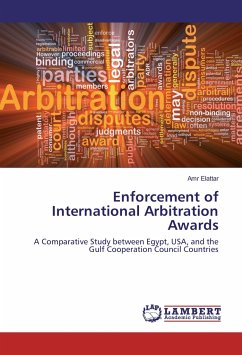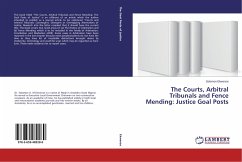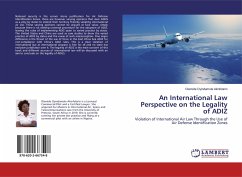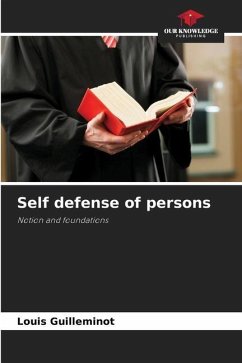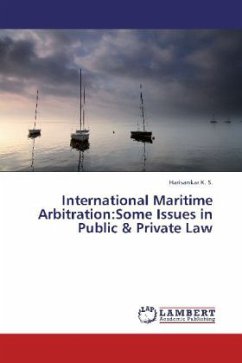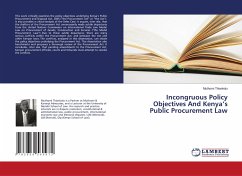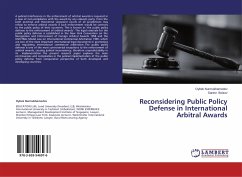
Reconsidering Public Policy Defense in International Arbitral Awards
Versandfertig in 6-10 Tagen
26,99 €
inkl. MwSt.

PAYBACK Punkte
13 °P sammeln!
A judicial interference in the enforcement of arbitral awards is required in a case of non-compliance with the award by any relevant party. From the both practical and theoretical viewpoint courts of all jurisdictions may refuse to enforce arbitral awards if such enforcement would be contrary to the public policy of their countries. This is known as 'the public policy defense to the enforcement of arbitral awards'. The legal rationale for the public policy defense is established in the New York Convention on the Recognition and Enforcement of Foreign Arbitral Awards 1958 and the UNCITRAL Model...
A judicial interference in the enforcement of arbitral awards is required in a case of non-compliance with the award by any relevant party. From the both practical and theoretical viewpoint courts of all jurisdictions may refuse to enforce arbitral awards if such enforcement would be contrary to the public policy of their countries. This is known as 'the public policy defense to the enforcement of arbitral awards'. The legal rationale for the public policy defense is established in the New York Convention on the Recognition and Enforcement of Foreign Arbitral Awards 1958 and the UNCITRAL Model Law on International Commercial Arbitration 1985, which are two of the most important international legal documents in promoting and regulating international commercial arbitration. The public policy defense is one of the most controversial exceptions to the enforcement of arbitral awards, causing judicial inconsistency, therefore unpredictability in its implementation. The present researchpaper explores the main controversies and complexities in the judicial implementation of the public policy defense from comparative perspective of both developed and developing countries.



